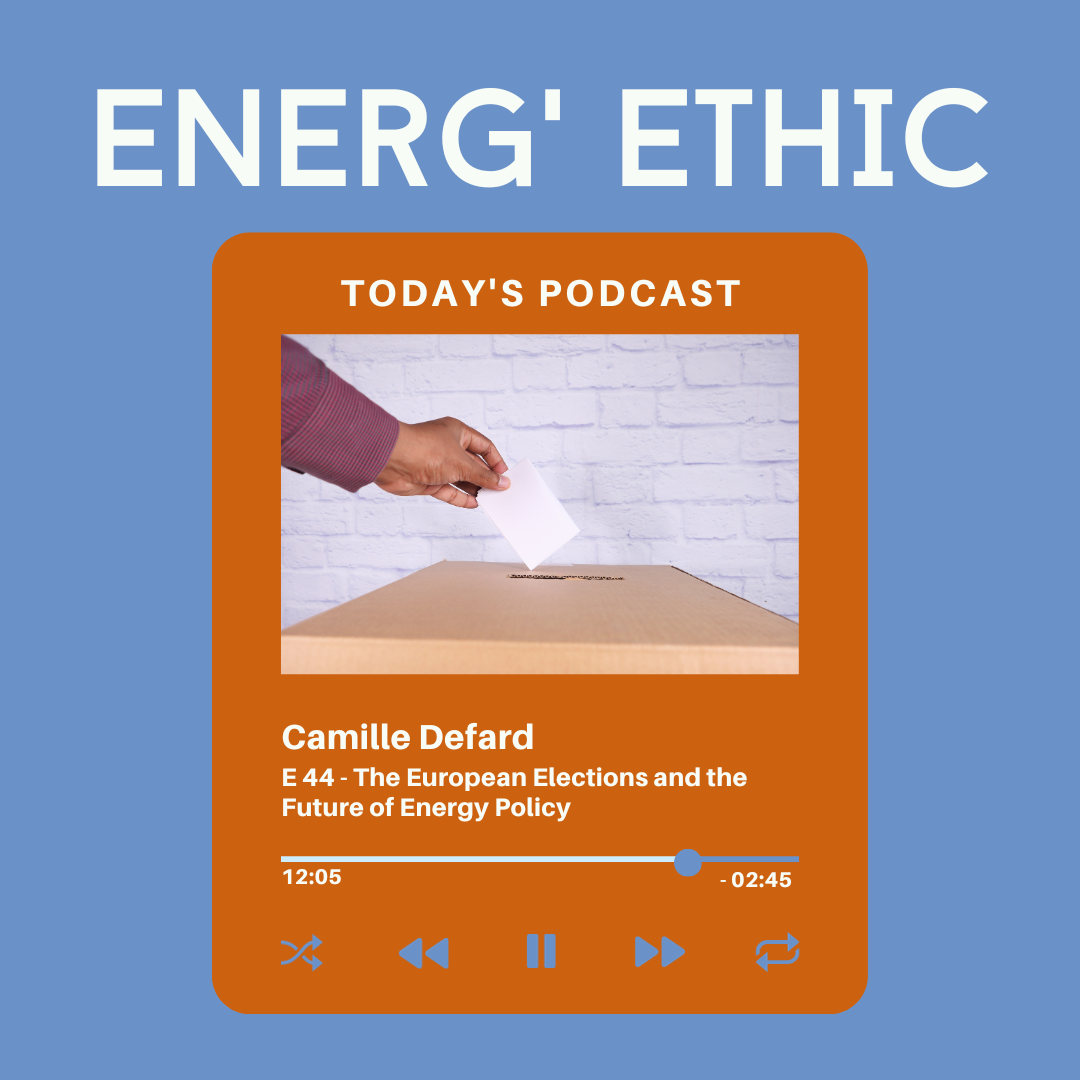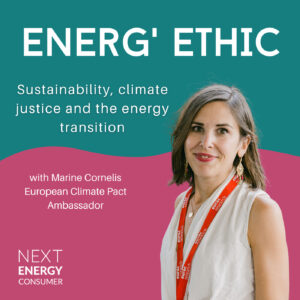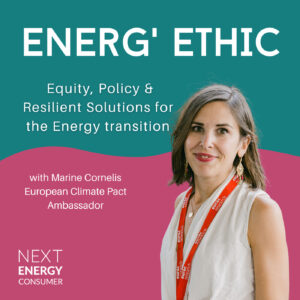As climate change transcends borders and ideologies, the European Union is approaching a pivotal moment. The upcoming European elections are more will be, in a sense are a referendum on the future of the continent’s energy policy. In the latest episode of Energ’ Ethic, Marine Cornelis and Camille Defard of the Jacques Delors Energy Centre discuss how the EU’s energy strategy is evolving to meet these global challenges.
Citizen Power: Reshaping the Energy Dialogue
The narrative of EU energy policy is undergoing a dramatic transformation. No longer confined to expert circles, citizen engagement has emerged as a key driver in this process. The shift towards energy democracy signals a new era where public opinion shapes the energy landscape. This movement transcends the technical aspects of policy, highlighting a growing recognition of the citizen’s role as both a consumer and an influencer in the energy transition.
Jacques Delors’ Vision: Steering Europe Through Energy Challenges
Jacques Delors’ influence on European energy policy remains profound and enduring. His vision for an Energy Union was a groundbreaking step toward a cohesive approach to energy issues within the EU. Today, the principles he championed – including the integration of social justice into energy policy – continue to guide the work of the Jacques Delors Energy Centre. The centre’s commitment to balancing geopolitical challenges with socio-economic considerations is a living testament to Delors’ forward-thinking approach.
The Green Deal: Charting Europe’s Path in a Turbulent World
The European Green Deal has emerged as a critical strategy for the EU amid global crises. Far from being static, initiatives like Next Generation EU and RePower EU symbolize the EU’s agile response to the dual challenges of climate change and economic transformation. These programs represent policy commitments and a dynamic, adaptable strategy for a sustainable European future.
Rethinking Governance: The EU’s Strategy for Integrative Leadership
The EU is redefining its energy governance, aiming to create an approach that is both integrated and goal-oriented. The elections serve as a crucial turning point in this process, offering an opportunity to either reaffirm or rethink the direction of the EU’s energy policy. This strategic shift underscores the need for collaborative governance that bridges local actions with Europe-wide objectives, positioning the EU as a leader in sustainable energy innovation.
Democratic Engagement: Forging a Collective Energy Future
The EU’s approach to energy policy is increasingly characterized by democratic engagement. Citizen assemblies and multi-stakeholder dialogues are becoming essential elements in the policymaking process, emphasizing the role of public participation in shaping Europe’s energy future. This approach not only enriches the policy discourse but also ensures that the strategies adopted are grounded in the realities and aspirations of European citizens.
Elections and the Energy Imperative: Charting Europe’s Course
The upcoming European elections are critical for the continent’s energy policy. They offer a chance to steer the EU towards a more sustainable and inclusive energy future. The dialogue around these elections is not just about electing representatives; it’s about setting the agenda for Europe’s approach to climate change and energy security. The voters’ choices will have long-lasting implications for how the EU navigates these pressing challenges.
Conclusion: A Defining Moment for Europe
As Europe stands at this crossroads, the imperative is to build an energy policy that balances environmental goals with economic needs and democratic values. As shaped by these elections, the EU’s stance in the coming years will be crucial in determining how it confronts climate change, champions green technology, and engages its citizens in these monumental decisions. Join us on Energ’ Ethic for an in-depth exploration of these issues with Camille Defard, as we dissect the implications of the European elections for the future of the continent’s energy policies.
Camille Defard is the author of Energy Union 2.0. to deliver the European Green Deal, for the Jacques Delors Institute, November 2023.



